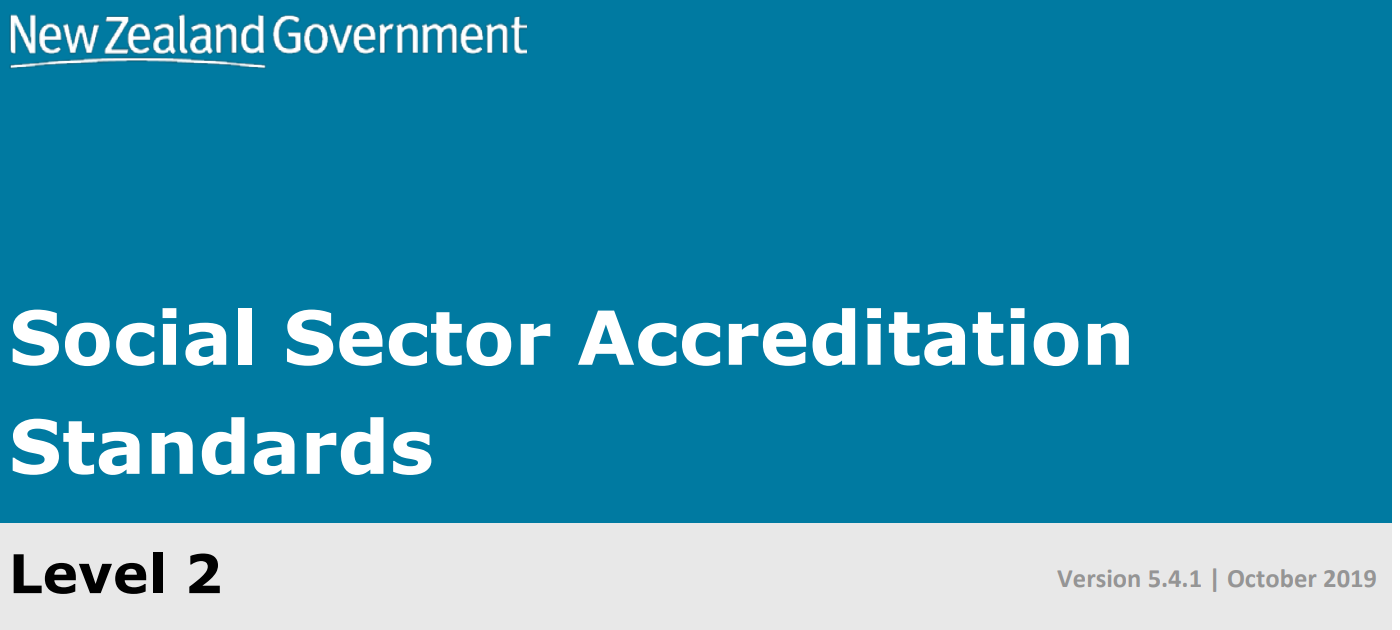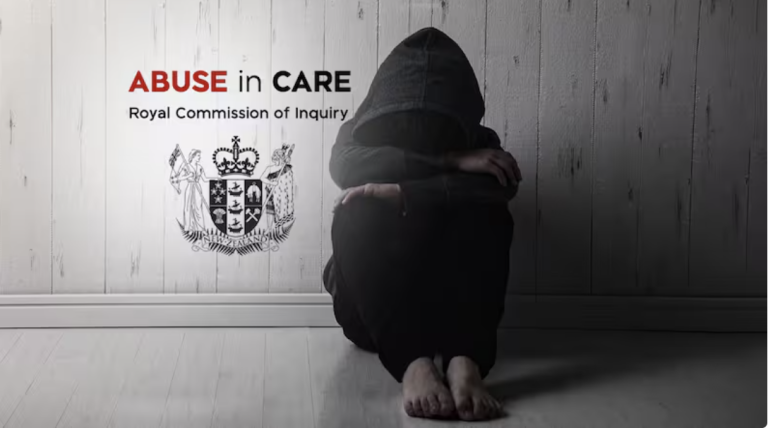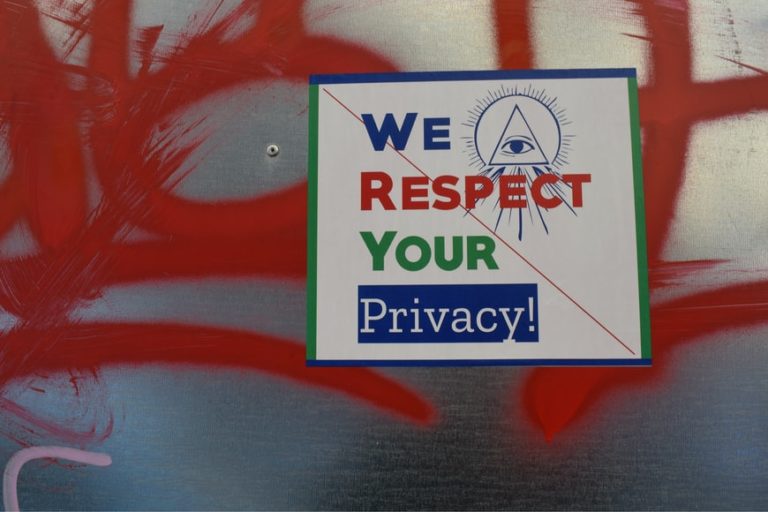Compliance
Safeguarding Vulnerable Adults: How Organisations Can Act on the Royal Commission’s Findings
In light of the Royal Commission of Inquiry into Abuse in Care, the urgent need for systemic change is clear. The harrowing stories shared by abuse survivors highlight critical gaps in safeguarding policies that must be addressed. Organisations in Aotearoa now have an unprecedented opportunity to protect vulnerable individuals by implementing robust safeguarding measures, ensuring abuse, exploitation, and neglect are prevented and addressed effectively.
At The Policy Place Ltd, we have recently reviewed and updated Abuse and Protection policies for our online clients to respond to the recommendations of the Royal Commission of Inquiry into Abuse in Care (“Royal Commission”) and Te Aorerekura National Strategy to Eliminate Family Violence and Sexual Violence. In our last post, we discussed how our policies align with the National Strategy. This post focuses on the “why” and “what” of coverage for a policy on safeguarding vulnerable adults.
Key Findings from the Royal Commission
The Royal Commission’s final report, Whanaketia – Through Pain and Trauma, From Darkness to Light, reveals the systemic failures that allowed pervasive abuse and neglect in state and faith-based care from 1950 to 1999. Nearly 3,000 survivors shared their experiences, underscoring the urgency for change.
Factors that Enabled Abuse:
- Lack of Oversight: Insufficient monitoring and accountability within care institutions allowed abuse to go unchecked.
- Power Imbalances: Significant power disparities made it difficult for victims to speak out or be believed.
- Cultural and Systemic Discrimination: Discrimination against Māori, Pacific Peoples, Deaf people, disabled people, and those experiencing mental distress contributed to vulnerability.
- Inadequate Training and Resources: Caregivers often lacked the skills and knowledge to recognise and address abuse.
- Isolation of Victims: Many victims were cut off from family and community, increasing their susceptibility to abuse.
Why Safeguarding Policies Are Crucial Today
The findings of the Royal Commission are not only of historical importance; they offer vital lessons for how care is provided today. Safeguarding policies must reflect these lessons to protect disabled people, kaumātua, and other vulnerable adults who rely on care and support services.
Vulnerability in Care Relationships
Those who depend on others for support face heightened risks due to:
- Dependency Risks: Reliance on caregivers for basic needs creates power imbalances that can be exploited.
- Communication Barriers: Disabilities and mental health challenges can hinder reporting and recognising abuse.
- Isolation: Being cut off from support networks makes individuals more susceptible to exploitation.
- Cultural and Economic Influences: Marginalised communities often face additional barriers to seeking help.
- Incompetency in Care Settings: Staff may lack awareness and skills to address abuse effectively.
Guiding Principles for Safeguarding Vulnerable Adults
The Royal Commission proposed principles that organisations can embed in safeguarding policies to prevent abuse:
- Diligent and Skilful Care: Provide care with professionalism and competence.
- Safe and Insightful Care: Tailor care to individual needs and circumstances, including proactive risk assessments.
- Caring and Compassionate Relationships: Foster trust and encourage open communication.
- Empowering and Timely Support: Empower individuals to understand their rights and access support.
- Mana-Enhancing: Recognise and uphold the dignity (mana) and wellbeing (mauri) of every person.
- Person-Centred: Build care strategies around each person’s unique strengths and needs.
- Participation and Voice: Support individuals to participate in decisions that affect them.
- Prevention and Safety: Implement diverse prevention strategies and awareness initiatives.
- Whānau and Community: Involve family, whānau, and community in decision-making.
- Cultural Responsiveness: Ensure responses address cultural needs and preferences.
Practical Safeguarding Procedures
To operationalise these principles, safeguarding policies should include:
- Awareness and Training: Regular training sessions for kaimahi and volunteers on recognising and addressing abuse.
- Proactive Monitoring: Routine checks on care relationships and environments to identify risks early.
- Supportive Culture: Create safe reporting channels, such as in-person, email, or formal complaints systems.
- Empowerment: Equip individuals with knowledge of their rights and self-protection strategies.
- Feedback and Complaints: Encourage feedback and address complaints transparently.
- Continuous Improvement: Use feedback to enhance services and prevent future issues.
Conclusion
Safeguarding policies extend beyond child protection to ensure that the gross abuses of the past are never repeated. By implementing these measures, organisations can provide safe, culturally responsive care that empowers vulnerable adults and upholds their dignity.
At The Policy Place, we have developed a comprehensive Safeguarding policy grounded in the Royal Commission’s recommendations. This policy is now available to all our online policy members and, like all our policies, will be regularly reviewed and updated to stay relevant. Interested in implementing a safeguarding policy? Contact us to learn more.
Onboarding staff to your policies and procedures
When onboarding staff you need introduce them to some key policies. But can you do that without boring them to death? And can you do it in a meaningful way?
Including policies in your onboarding process is important for many reasons. One, because policies and procedures help you manage risks and guide best practices in your organisation. Secondly, because staff have to know the policies and procedures in order to implement them. Thirdly, because when and if “crunch time” comes, you won’t be able to rely on your policies and procedures if you’ve never taken the trouble to bring them to your staff’s attention.
At the Policy Place, we deal with many clients who talk about the difficulty of getting staff to read and apply policies and procedures. So be assured, you’re not alone with this challenge.
In this post, we’re going to look at two ways staff can be introduced to policies and procedures in an organisation.

Option 1 – You’re killing me
This is when you start a job and are told to sit and read the policies and procedures, then sign off on them once done. In the old days the policies and procedures were a dusty old manual. More modern renditions might be on a Shared Drive or Online Platform like the Policy Place online policy service.
In our online policy service, we aim to make policy content more digestible and accessible. By using an online platform, we reduce the typical density and repetition in organisational policies by using internal and external hyperlinks. We support policy implementation by providing training and other helpful resource links.
The Policy Place gets a lot of positive feedback for its online policies. However, no matter what form policies and procedures take and how hard we try to make them user-friendly, policies and procedures just don’t feature in people’s “top of the pops” list.
Typically, people try and avoid policies. It doesn’t make sense therefore for an organisation to ask new staff to read through their policies and procedures and sign off on them for induction. What an excitement killer!
It’s also a strategy that is unlikely to succeed. Reading policies without having the knowledge or chance to apply the content to real situations and issues, makes it hard to grasp and understand the policy content let alone apply the content.

Option 2 – YES I get it!
A much better way of onboarding staff to policies and procedures is through short online courses that cover off the “essentials” in policy area.
The courses need to be interactive and give staff the chance to apply what they learn to problems and scenarios. The courses are not substitutes for the policies and procedures. But they should address “the essentials” and refer to your policies and procedures.
This type of course is now being offered by the Policy Place.
“Yes, I get it!” is how staff will feel at the end of one of the courses. The courses are interactive and give staff the opportunity through the courses to learn and apply key policy essentials in areas like health and safety and Abuse and Protection to real scenarios and problems. Other courses are in progress.
The courses get rid of the need for staff to have to read through and sign off on policies as part of their induction.
Most of the courses can be completed within 30-40 mins. Once completed, staff are issued with a certificate. This gives you the proof you need as a manager to assure yourself that staff do have the required understanding of key policies and procedures.
Onboarding staff to “Yes I get it”
You can aim high now with your inductions – for your new staff to be motivated and to understand the essentials of your policies and procedures. And with this as your starting point, policy implementation in your workplace looks a lot rosier!
Enrol NOW!
Legislative compliance – we have you covered
Have you been asked about a legislative compliance policy?
If you’re an online policy member with the Policy Place, you can relax. We’ve got you covered.
All our policies are based on the law and we review them by reference to the law and regulations. If and when legislation changes, we review and update any affected policy.
We don’t just say we’ll comply with the law via a legislative compliance policy. We have the processes in place to do it. Here’s how.
Legislative compliance during policy development

We research the law, Te Tiriti o Waitangi/ the Treaty of Waitangi, regulations, accreditation and auditing standards to identify if a policy is needed and what it must address. Although we have hundreds of policies in our policy library, gaps still emerge. Recently, for example, in response to a request from a member, we developed a policy on Remuneration of Board members/ Trustees.
Monitoring for legislative compliance
We monitor the passage of new and amending legislation so our members have the policies they need before new legislation commences. As examples, we recently updated members’ online policies in response to the Fair Pay Agreement Act 2022 and the commencement of the Protected Disclosures (Protection of Whistleblowers) Act 2022.
Other sources of potential change that we monitor are Treaty jurisprudence and decisions of the Employment Relations Authority.
Review and updating of policies
We review and update our members’ policies based on a two-yearly schedule. As part of this, we review the law, Treaty and other jurisprudence, regulations, and auditing criteria that apply to the policies being reviewed.
A broad approach

Typically, a legislative compliance policy lists the main legislation, regulations and rules that an organisation has to stay on top of. But this is a narrow approach.
By contrast, at the Policy Place we aim for policies that comply with the law and regulations and with Te Tiriti o Waitangi -as a founding document of Aotearoa. We also consider International Instruments like:
- The United Nations Convention on the Rights of Persons with Disabilities
- The United Nations Convention on the Rights of the Child
- The Optional Protocol to the Convention against Torture and Other Cruel, Inhuman or Degrading Treatment or Punishment (OPCAT)
- The United Nations Declaration on the Rights of Indigenous Peoples
Want help with your policies?
Keeping up with the law, regulations and other changes can be time-consuming, especially for already-busy HR and operational managers. Let us help – we want to lighten your load.

Privacy policy – time for review and update
At the Policy Place we’ve just finished reviewing and updating the core content of our online privacy policy pages. The policy content is aimed at helping our members comply with the Privacy Act 2020 and if they are a health agency, the Health Information Privacy Code 2020.
We review and update core policies regularly based on a 2- year cycle. We let our members know beforehand and invite their feedback on the policies that are scheduled for review. Using their feedback and reviewing legislation and relevant developments, such as the commencement in February 2022 of Ngā Paerewa Health and Disability Standard, we then review and update the policies.
It doesn’t seem that long ago that we drafted the policy content to reflect the content of NZ’s new Privacy Act 2020, which commenced in December 2020. Now, with nearly 2 years of the new legislation under our belt, we’ve been able to review and update the policy content with the benefit of good working knowledge.
So what’s remained the same and what’s changed through the policy review process?
Privacy Policy topics
We’ve continued to address privacy in terms of 4 main “chunks” or pages:
- Protection of privacy – which covers obligations relating to collecting, using, accessing and correction of personal information.
- Information safeguards- dealing with operational and electronic basics to protect personal information.
- Information-sharing – outlines general rules like getting a person’s consent to sharing personal information before you do it as well as law allowing an agency to share a person’s health or other personal information without their consent
- Managing privacy breaches – which includes notifying the Privacy Commissioner and affected people of any breach which causes or could have caused serious harm.
Each of the pages include a Helpful Links section that enable easy movement across pages and to relevant sites like the Office of the Privacy Commissioner.
Privacy policy updates – what’s different
Shorter and more succinct
We treat reviews as opportunities to improve on what we’ve done previously.
With most of our members having a strong operational focus and few opportunities to read and digest a lot of text, we’ve taken the chance to edit the pages to make them more succinct and get rid of “fluff” like duplication.
Guidance on disclosing personal information for health and safety reasons

A key change our members will see is to the Information-sharing page.
We’ve updated the page to reflect the case law arising out of two High Court judgements issued in 2021 (Te Pou Matakana Limited v Attorney-General judicial review (No 1) [2021] NZHC 2942 and (No 2) [2021] NZHC 3319
These considered the Ministry of Health’s decisions declining requests for vaccination status information of Māori in Te Ika a Maui from Te Pou Matakana Limited (trading as Whānau Ora Commissioning Agency (WOCA)).
From these decisions, we’ve updated the Information-Sharing page to include the following:
Disclosure of health information may be allowed if it’s needed for health and safety purposes. The statutory wording of “necessary” doesn’t involve a higher bar.
When considering whether to disclose personal/health information concerning tangata Māori, in addition to the above, Tīkanga Māori and the principles of Te Tiriti o Waitangi should be considered. While personal data may be a taonga protected under Te Tiriti of Waitangi, when disclosure of health information is needed to improve health outcomes for Māori, the “highly prized” taonga of life and health will win out. Treaty principles such as the principle of options will also be relevant because sharing of personal/health information can be a vital resource for a kaupapa Māori service to do its mahi with tangata Māori.
Policy review and updating – stepping out
The days of 2-3 year cycles for policy review and updating for health, social services, education-related services seem long gone.
Regulatory change is all too frequent.
So how can you stay on top of the fast-paced regulatory changes in your sector or industry with your policies? It’s important if you want to comply with law and regulations and provide a quality service or product.
Bad news – there are a few sizeable tasks involved. We look at 3 of them below.
But the Good news is that when you join the Policy Place online policy service, you not only get set up with policies. You get the core content of your policies regularly reviewed and updated for regulatory changes. You get the chance to input to reviews but you don’t have to.
3 key jobs with policy review and updating
Prepare for policy change
First task – stay alert for changes to law and other regulations eg Public Health orders.
During the pandemic, we’ve been able to rely on media and the Covid-19 government website for early warnings about pandemic-related changes.
But what about less obvious changes? If you think a change might be coming you could:
- try a google query to see what comes up and follow up on sources like Taskforce reports, white papers
- go to the relevant government website
- check out NZ legislation for law changes.
Review and assess the scope of policy change
The second job is to review the likely changes and assess whether they warrant a change to your policies and procedures. Some questions to consider here are:
- how different are the changes from what was before
- what group of policies might be affected? Sometimes regulatory change may require updating just one policy. More often, though, change may be needed across a few policies
- what do your policy users think is necessary.
Review and updating
The third job is to make the changes.
While doing this, it’s a good idea to review other aspects of the policy. Get it fully up-to-date, ready for a new review date to be set and the policy changes signed off.
You can schedule the next review date in accordance with the industry/sector standard (eg 2 years for the social sector) but expect that review is likely to be needed far earlier.
You’ve made the changes. Job well done.😊
But no you can’t rest. 🙄
You must remain on alert for further regulatory/legal changes and be ready to repeat the cycle – jobs 1-3. Again. And again.
Breaking the policy review and updating
When you join the Policy Place online policy service, you no longer have to worry about the policy review and update cycle. You get the opportunity to participate in reviews and updates of your policies but you’re not required to stay alert and execute changes to your core policy content.
We review and update it for you.
Want in?
Contact us now to discuss how we can support you with your policies and procedures.
Open disclosure for good policy and practice
What’s open disclosure and how should your policies and procedures provide for it?
Ngā Paerewa Health and Disability Services Standard requires an “open disclosure” policy and procedure. So does the Foundation Cornerstone Indicator 1.1.
Here’s what it involves and a couple of options to address it.
What is open disclosure?
Open disclosure means what it says- being open and ready to disclose. But what about?
Not just the good stuff.
Open disclosure means being open about the “not so good” too.
We don’t usually mind talking about what went well. We tend to be more reticent though about what hasn’t gone well. A fear of consequences eg legal action has often encouraged organisations to hide or be secretive about mistakes and errors in treatment and services.
Hence the compliance obligation for agencies subject to the Health and Disability and Cornerstone Foundation Standard to prescribe in open disclosure in policy.
The policy typically deals with what should happen when there’s an adverse impact or error made in treatment or service delivery. If something goes wrong, policy requirements are to own up and apologise.
People should be fully informed about what went wrong and the consequences, treated with empathy and respect, informed about changes made in response to the error (to prevent recurrence) and supported appropriately.
Policy options to address open disclosure
Open disclosure is integral to the protection of other rights in the health and social services like the right to informed consent and the right to exercise self-determination over care. It is also important to an agency making ongoing improvements to the quality of services and care it provides.
The easy way is to provide a specific policy and procedure on open disclosure. We see lots of agencies that do this. It meets their compliance obligations and as a distinct policy, has the benefits of being easily found and clear because it has a narrow focus.
However, our preferred approach is to integrate open disclosure across the policy and procedure suite.
In the Policy Place online policy and procedure system, open disclosure is woven throughout the policy suite to support the service user’s right to have a voice and be an active participant in their own care.
Open disclosure is a core part of the Adverse Incident Management policy and policies addressing informed consent, client participation and client, whānau -/patient-centred practice.
Disclosure about what went right and wrong should also be a subject of ongoing discussion as client and practitioner through the journey of care, service planning, treatment, service delivery and review.
It is key to managing and learning from incidents – because in talking with clients and whānau about what went wrong, we learn from their perspective about what needs fixing and can focus our investigations and improvements on the right things. It also opens up the possibility of making things right – to find out what, if any, support the person or whānau harmed by an error or mistake needs to deal with the impacts.
An integrated approach
Contact us if you like the sound of an integrated approach to open disclosure and joining the online policy system.
Health, disability and social services from across Aotearoa have joined the online policy service to get:
- 24/7 online policies to support their accreditation and compliance obligations
- the assurance of regular reviews and updates
- a one-stop site on which to house their policies and procedures and related documents.
Don’t put off what you can do today.
We’re just an email or phone call away. We have a waitlist to join people up so CONTACT US NOW if you want to book in.
Online policies and procedures to stay current
It’s important but tough to keep your policies and procedures up with the changing risks of COVID-19.
In Aotearoa, over the last 2 weeks and in the space of less than 24 hours, we’ve plunged from Alert Level 1 to Level 4 restrictions. Soon, we’ll be operating at different levels of restrictions. It’s complex. And it’s constantly changing.
So when it comes to your policies and procedures, you can’t rest on your laurels.
It’s important that your policies and procedures provide staff with the guidance they need to operate safely in the relevant levels of restrictions.
You can’t rely on what you did last time under lockdown.
The legal rules for the different alert levels have changed to keep up with new knowledge about the Delta virus and how it is transmitted. Even as I write this, workplace restrictions are being reviewed to see if there are ways to strengthen safeguards to prevent transmission of the virus to and by Essential Workers.
So it’s a moving feast when it comes to keeping up with Covid-related changes in the workplace.
Going online with your policies and procedures has never been more important
It’s never been more important to have your policies and procedures online so that your people can access them anywhere, anytime.
It might be a big shift, especially if you still prefer to print off and work with paper-based policies. But we can all adjust.
After all, we used to have cheques. Now they are all but gone. It was hard to imagine living without cash but since the pandemic, cashless has become the new norm.
How to go online
The first step is to identify when, who and in what circumstances your organisation uses and needs its policies eg are you subject to the Social Sector Accreditation or Health and Disability Standards? Do your volunteers and outreach workers need access?
On this basis, you can then consider what options might work best for you, your kaimahi and board. For DIY options – you could consider setting up your own set of policies on Google Docs or Sharepoint.
If you’re going with DIY, once you’ve decided on the option, you will need to review your policies. Consider and evaluate your policies against relevant law and other compliance obligations. If they’re not compliant you will need to update them.
Last step, upload them and set up access. Think about who needs access and to what and set up the permissions.
We’re so glad to offer our 24/7 online policy and procedure service
If you want ready -made access to online policies that are reviewed and updated, then our online policy and procedure service could do the trick.
It’s our most popular product.
Why? Because you get:
- online policies and procedures
- customisation with your brand, logo and unique processes
- your policies regularly reviewed and updated for law, regulation and other changes
- notes to support you to implement policies with kaimahi/staff.
Subscribers love the review and updating part of our service. They no longer have to worry about trying to keep up-to-date with law and can focus on their other mahi. They tell us a big load off!
Just do it – go online
Policy access anytime, anywhere, for your organisation is a key way of ensuring that outreach and remote service provision meet minimum quality standards.
Whatever way you want to do it – now is the time to go online and move away from messy Word files and outdated PDF documents that no one can find. It’s a no brainer!
It can be done and if you want support – get in touch.
Online policies and procedures – it’s a no-brainer!
So you’ve joined the Policy Place online policy service. Welcome aboard!
It’s our most popular service especially for agencies and practitioners who have to comply with the Social Sector Accreditation Standards and Health and Disability Standards.
It’s a no-brainer. Not only do we provide online policies to help your compliance. We also review and update them regularly so that you and your staff can get on with the other mahi/work you need to do.
To help you understand the system more, here are answers to some common questions that we get.
Why is there a policy on something we didn’t previously have a policy for?
Your set of online policies are aimed at addressing the Health and Disability and Social Sector Accreditation Standards. You will be joined to a policy page because we’ve thought it would be helpful and relevant to your service given your compliance needs and good practice requirements. If you think otherwise then let us know. Likewise, let us know if you think you are missing something.
Does every member have the same policies as us?
To set each agency up with their particular set of policy pages, we consider what compliance needs they have, the services they provide and their existing policy documents. This means that services may be set up with a similar set of policies but that these may have been customised in different ways.
Can we edit and add in other policies?
Members can’t edit or add to policy content. This is to protect the core content that is common across subscribers.
Do we have to review and update the online policies?
No, we review and update your policy set. When you join us, you will receive a Schedule for when policy pages will be reviewed. You will be notified before each review and invited to provide feedback. Your feedback along with feedback from others and relevant law, policy and practice changes is considered and used for updating. You are then advised of the policy updates.
How do we get our staff and board to use the online policy system?
It can be hard to get used to a new system, but people can adapt. They may have always used paper-based policies so going online means entering the unknown. But people can do it. If we want to survive in a pandemic, enable remote work and reduce waste – online policies and procedures is the only way to go!
Can we get extra online policies?
Yes, we can develop and upload additional policies for you at an additional cost.
What happens if we sign up?
We will schedule you in and ask you to send us your existing policies and procedures, your branding and any other information you think will help us customise the policies for you. Once we’ve finished we send you a log in. From then on, we keep in touch through reviews and updates. We talk more about the system here.
Can we put our existing policies and procedures on the system?
No you can’t. We keep the cost low for subscribers and can provide reviews and updates only by maintaining core common content. We therefore provide only limited customisation. If you want a fully bespoke set of policies, we can provide this on an one-off basis. You are welcome to contact us to discuss.
For more information see HERE
5 policy and procedure tips for good recordkeeping
Have you experienced, as a client in the health or social service system, being asked to repeat your story numerous times? Being given inconsistent and conflicting advice by practitioners about the same thing?
We had recent experience of this when my dad was admitted to hospital. Individually, staff were caring towards my dad. However, time after time, we were told different stories about tests to be done, next steps etc.
While staff were trying to be helpful, the conflicting stories gradually eroded our confidence in the quality of care dad was receiving.
The experience reminded me about the importance of recordkeeping – keeping good records and using them to inform whānau/client service delivery. That every health and social service should have policies and procedures about keeping and using client records.

Health and Disability and Social Sector requirements
The importance of good records is reflected in the Health and Disability and Social Sector Accreditation Standards.
Both sets of standards require the timely and accurate taking and safeguarding of client notes. For example, it is a health and disability requirement that consumer information is uniquely identified, recorded, current, confidential, and accessed when required. Guidance for this standard (NZS 8134:1:2:208 Consumer Information Management Systems 2.9) states that client notes should be:
- entered by multiple practitioners in a continuous record for each client
- entered in a timely manner
- be factual and objective, and
- signed by the practitioner/author with date and time entered.
The Social Sector Accreditation Standards also has extensive obligations in relation to recordkeeping.

Your policies and procedures
Keeping and updating whānau/client records can seem a bureaucratic task and not as important as service delivery matters. But without good records, it is difficult to provide responsive and quality services. It is much more likely that clients will be asked to repeat their stories and given conflicting and inconsistent advice.
The challenge for your Recordkeeping policy and procedure is to bridge the gap between policy and practice – to help staff understand the connection between using and keeping records and quality service.
Here are some ideas on how to do this in your policy and procedure:
- Start with a strong policy intent. At the Policy Place, for example, the stated intent of our Client Recordkeeping policy includes clients not being asked to repeat themselves.
- Link recordkeeping obligations to specific phases of a service eg assessment, monitoring, closure of case so that staff are reminded that all interactions with the client count and need to be recorded.
- Make it easy for staff to enter accurate and contemporaneous records. For example, provide tablets or ipads to enter or transfer information into electronic records; include supports for staff who use English as a second language.
- Incorporate privacy safeguards so that staff and clients are re-assured that their personal information will be treated respectfully and carefully.
- Include a requirement to obtain and reflect client/whānau feedback in the record.
If you want help with your policies and procedures…
Give us a ring or email us at the Policy Place. We want to help you deliver quality services supported by relevant and up-to-date policies and procedures.
Through our online service, we give you the option of policies and procedures that can be easily accessed by your staff and board members anywhere anytime. We review them and keep them updated so when staff are looking for what’s expected in relation to client records, privacy etc they know they can be assured they are looking at current (not outdated) policy requirements.
No more multiple versions. No more confusion. You get just one version: the most up-to-date version.
Ready, set, go – update your policies and procedures now for privacy changes
It’s time for social, health and other services to get their policies and procedures ready for the new Privacy Act 2020. The Act commences on 1 December.
The Act applies to all social service and health providers and the range of personal information that agencies collect for referral, service delivery, employment and other purposes.
The Act is not revolutionary. Much of the current privacy regime will continue.
However, the Act introduces some changes that agencies will need to reflect in their organisational policies and procedures. Two of the changes are a new obligation to collect information in a fair manner and a duty to report serious privacy breaches.
Fairness when collecting personal information
The Act requires that collection methods are fair with particular regard to be given to the circumstances of children/tamariki. The requirement aligns us with overseas jurisdictions like Canada and Europe’s General Data Protection Regulation (article 5(1)(a)).
The obligation to act fairly is closely linked to Principle 3, which requires that when collecting information from a person, that person is made aware of a number of matters including:
- the purpose of collection
- what will be done with the information collected
- their right to correct the information etc
To act fairly you must not act in a misleading or deceptive way.
As a social or health service collecting personal information, to be fair you need to inform about Principle 3 matters in a way that is understandable and appropriate to the person from whom information is being collected. Collection methods should therefore take into account and be responsive to disability-related needs; cultural backgrounds, language and cultural differences.
What does fairness mean when working with children/tamariki?
If personal information is being collected from a child, fairness requires that agencies should consider and address the risks that the tamaiti/rangatahi will be less aware of their rights, less able to understand the purpose of collection and the importance of safeguards.
Their best interests should be considered (as elaborated in the Oranga Tamariki Act 1989 and UNCROC) and how their personal information can be collected in a way that:
- addresses their needs, age, ability, culture
- supports their wellbeing
- avoids causing harm, detriment or undue interference to them and their whānau
- supports the primary role of their parents and those with whanaungatanga responsibilities for them, and
- other circumstances relevant to the child/rangatahi.
To collect information fairly, think about using age-appropriate formats (eg using diagrams, cartoons, graphics, gamification, videos etc) and ensure information is given to parents and whānau in clear and accessible ways.
Duty to notify serious harm
The new Act makes it mandatory to report notifiable privacy breaches to the Privacy Commissioner and affected persons. To be notifiable, the breach must have caused or pose a risk of serious harm to a person.
This requirement aligns with notifiable breach provisions in other countries like Canada and Australia. There are three reasons for it:
- people have a right to know that their privacy has been breached and should be made aware of the breach so that they can minimise adverse impacts
- agencies are more likely to take the security of personal information seriously (and to address breaches early before harm is caused) if they know they have to report a breach, and
- to assist the Privacy Commissioner to address systemic privacy issues.
A failure to comply with the requirement to report a breach will attract a sizeable penalty.
This new requirement is basically a call to pull-up our socks when it comes to safeguarding against privacy breaches and to ensure that we manage breaches in a responsible and accountable way.
Updating your policies and procedures
We’re recently reviewed and updated our privacy policy suite for our online subscribers.
If you’re not a subscriber, now is a good time to join us. You will get:
- updated privacy policies PLUS
- access to the full range of policies and procedures aimed at the Social Sector and Health and Disability standards PLUS
- the policies customised to your branding/ unique aspects of your organisation PLUS
- no more worry about the reviews and updating because we do it for you PLUS
- the benefit of cross-sector input to reviews and updates.
Book your Free Policy Consult now – if you want to know more about our online policies and procedures.
If, however, you want to stick with the DIY approach, it’s time to get ready – 1 December is not far away! The Office of the Privacy Commissioner has some great resources to help you.
For more on fair practice with children see eg Age Appropriate Design: a code of practice for online services).









